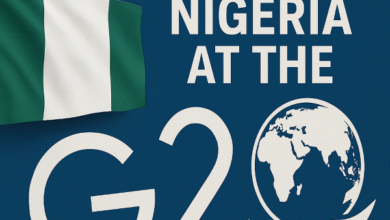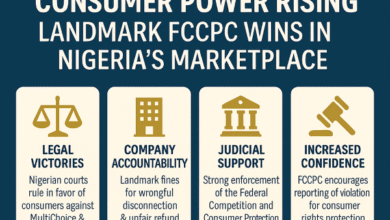AfDB, Japan Seal $5.5bn EPSA6 Pact to Power Africa’s Private Sector Growth

At the Ninth Tokyo International Conference on African Development (TICAD9) in Yokohama, Japan, the African Development Bank (AfDB) and the Japan International Cooperation Agency (JICA) signed a landmark agreement to launch the sixth phase of the Enhanced Private Sector Assistance (EPSA6) initiative. The deal will mobilise up to $5.5 billion between 2026 and 2028, a half-billion increase over the previous EPSA5 framework.
The agreement cements Japan’s role as AfDB’s strongest bilateral partner and underscores Africa’s growing importance as a frontier for private sector-led development.
What is EPSA?
Launched in 2005 by the AfDB and the Government of Japan, EPSA is a flagship financing framework that catalyses private sector-driven projects in Africa. Its priorities span:
- Power and energy infrastructure
- Connectivity and transport
- Healthcare systems
- Agriculture and nutrition
- Resilience and climate change adaptation (new under EPSA6)
Over nearly two decades, EPSA-backed projects have reshaped Africa’s economic landscape, supporting transformative investments such as Uganda’s Bujagali Hydropower Plant, the East Africa Submarine Cable System, Nigeria’s Lekki Toll Road, and Rwanda’s Kigali Bulk Water Supply.
Why EPSA6 Matters
The $5.5bn commitment is five times the size of the original EPSA1 in 2005, reflecting both Africa’s expanding financing needs and the strength of the AfDB–Japan partnership.
Dr Akihiko Tanaka, President of JICA, noted that past phases of EPSA had already mobilised $12 billion in co-financing, while EPSA5 alone (2023–2025) delivered $4 billion in joint funding and has another $1.6 billion in projects advancing to completion by 2025.
With EPSA6, the focus on resilience is especially strategic. African economies continue to face shocks ranging from climate change and commodity volatility to debt pressures and global disruptions. By embedding resilience, the initiative goes beyond infrastructure to create buffers against systemic risks.
Japan’s Role and Strategic Intent
For Japan, EPSA is more than aid—it is a geoeconomic bridge to Africa’s markets. Japan’s Finance Minister, Katsunobu Kato, framed EPSA6 as a tool to help African economies manage debt while unlocking private sector opportunities.
Japan’s sustained partnership with AfDB also signals a strategic balance against China’s Belt and Road Initiative (BRI) and Western financing frameworks. Through EPSA, Tokyo demonstrates its commitment to quality infrastructure, financial discipline, and long-term partnerships rather than short-term projects.
AfDB’s Commitment and Legacy of Akinwumi Adesina
Outgoing AfDB President Dr Akinwumi Adesina received commendation from JICA for championing EPSA’s growth during his tenure. AfDB Vice President Kevin Kariuki described EPSA as the bank’s largest and longest-standing bilateral partnership with any development finance institution, calling Japan’s commitment a “bedrock” of Africa’s financing ecosystem.
For AfDB, EPSA6 is not just about mobilising funds but about crowding-in private capital, de-risking African projects, and creating bankable opportunities that can sustain long-term growth.
Beyond Financing: A Test for Africa’s Private Sector
EPSA6 arrives at a pivotal moment. Africa is grappling with rising debt, infrastructure gaps, and climate stress. Yet, it also presents one of the world’s fastest-growing consumer markets with opportunities in fintech, agribusiness, renewable energy, and logistics.
The infusion of $5.5bn targeted at private sector development could catalyse:
- Expanded renewable power capacity
- Smarter transport corridors
- Climate-resilient agriculture
- Health infrastructure for rapidly urbanising populations
BRANDECONOMY Takeaway
The AfDB–Japan EPSA6 pact is more than just a financing milestone—it is a vote of confidence in Africa’s private sector future. By raising the bar to $5.5bn, embedding resilience, and expanding its scope, EPSA6 shows that Africa is not just a development challenge but a growth frontier.
For Africa, the question is whether governments can align policies, remove bottlenecks, and create an enabling environment that allows this capital to unleash its full impact. For Japan and AfDB, it is proof that partnerships rooted in trust and long-term strategy can deliver transformational outcomes.
In the race for Africa’s future, EPSA6 is both a shield against shocks and a ladder to shared prosperity.











